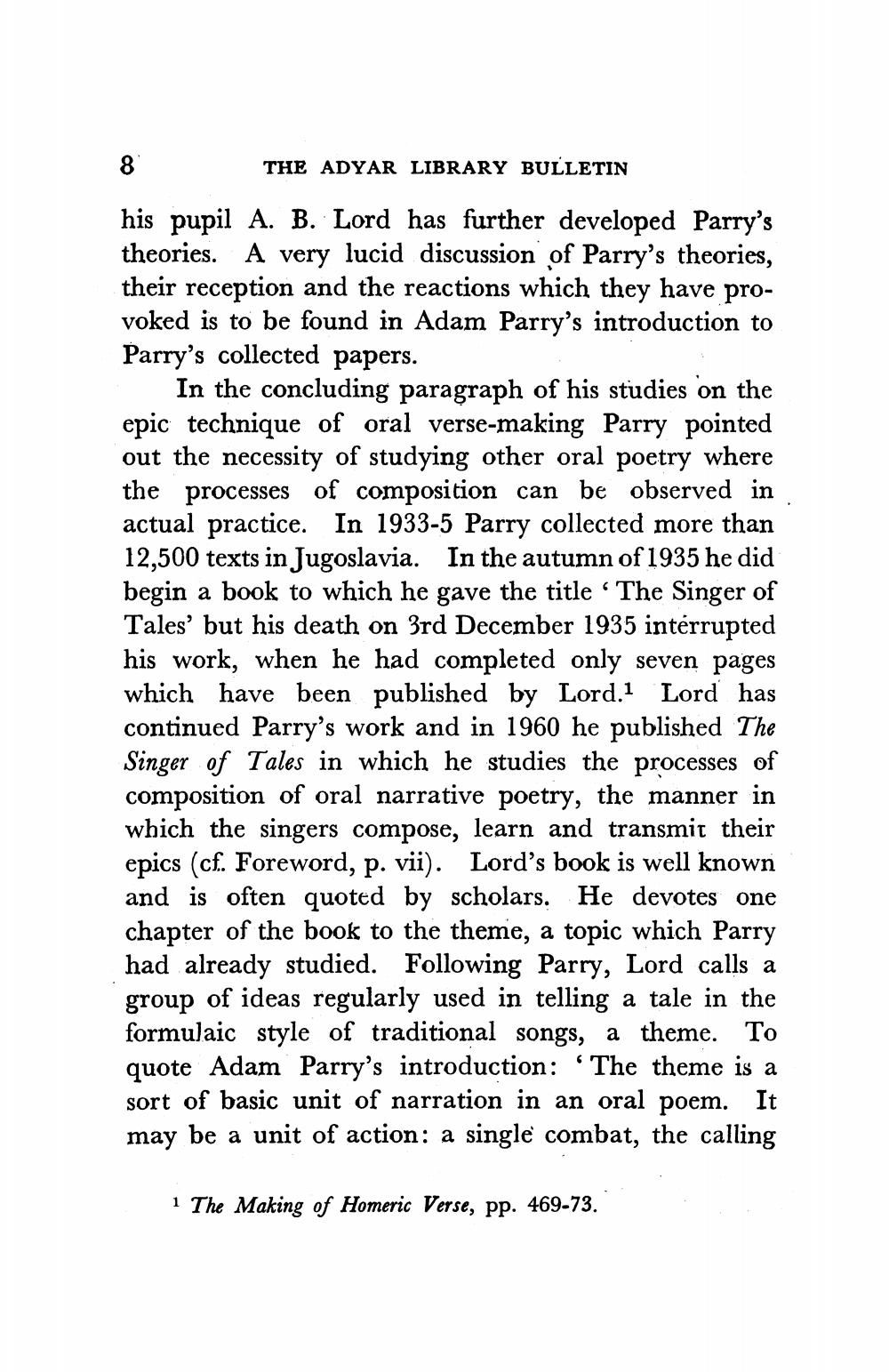Book Title: Recent Russian Publications On Indian Epic Author(s): J W De Jong Publisher: J W De Jong View full book textPage 8
________________ & THE ADYAR LIBRARY BULLETIN his pupil A. B. Lord has further developed Parry's theories. A very lucid discussion of Parry's theories, their reception and the reactions which they have provoked is to be found in Adam Parry's introduction to Parry's collected papers. In the concluding paragraph of his studies on the epic technique of oral verse-making Parry pointed out the necessity of studying other oral poetry where the processes of composition can be observed in actual practice. In 1933-5 Parry collected more than 12,500 texts in Jugoslavia. In the autumn of 1935 he did begin a book to which he gave the title “The Singer of Tales' but his death on 3rd December 1935 interrupted his work, when he had completed only seven pages which have been published by Lord.1 Lord has continued Parry's work and in 1960 he published The Singer of Tales in which he studies the processes of composition of oral narrative poetry, the manner in which the singers compose, learn and transmit their epics (cf. Foreword, p. vii). Lord's book is well known and is often quoted by scholars. He devotes one chapter of the book to the theme, a topic which Parry had already studied. Following Parry, Lord calls a group of ideas regularly used in telling a tale in the formulaic style of traditional songs, a theme. To quote Adam Parry's introduction: The theme is a sort of basic unit of narration in an oral poem. It may be a unit of action: a single combat, the calling 1 The Making of Homeric Verse, pp. 469-73.Page Navigation
1 ... 6 7 8 9 10 11 12 13 14 15 16 17 18 19 20 21 22 23 24 25 26 27 28 29 30 31 32 33 34 35 36 37 38 39 40 41 42
